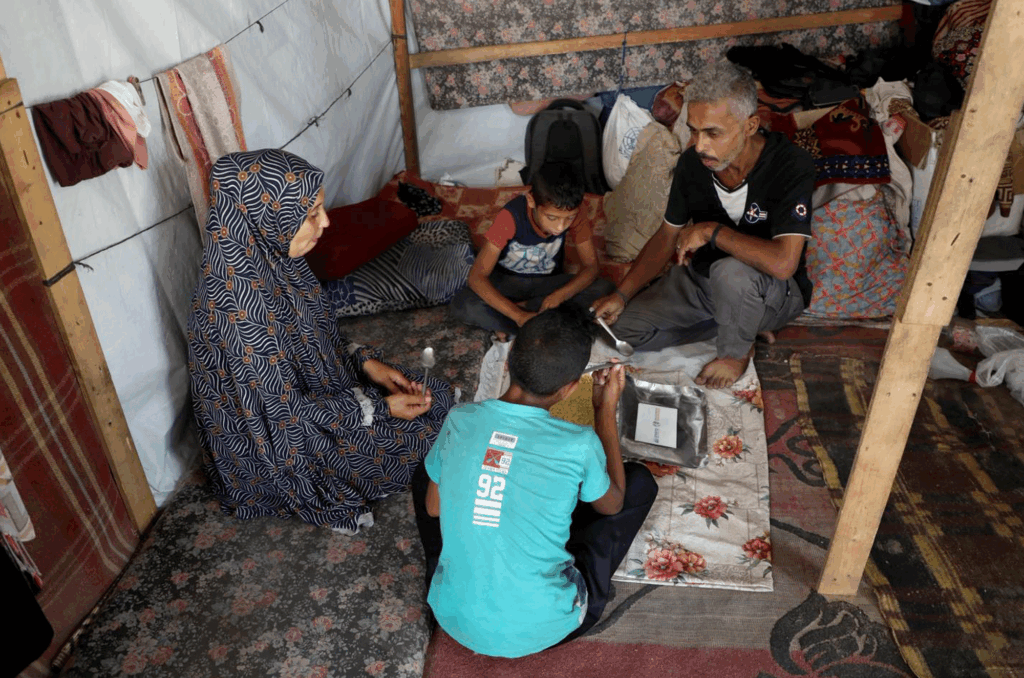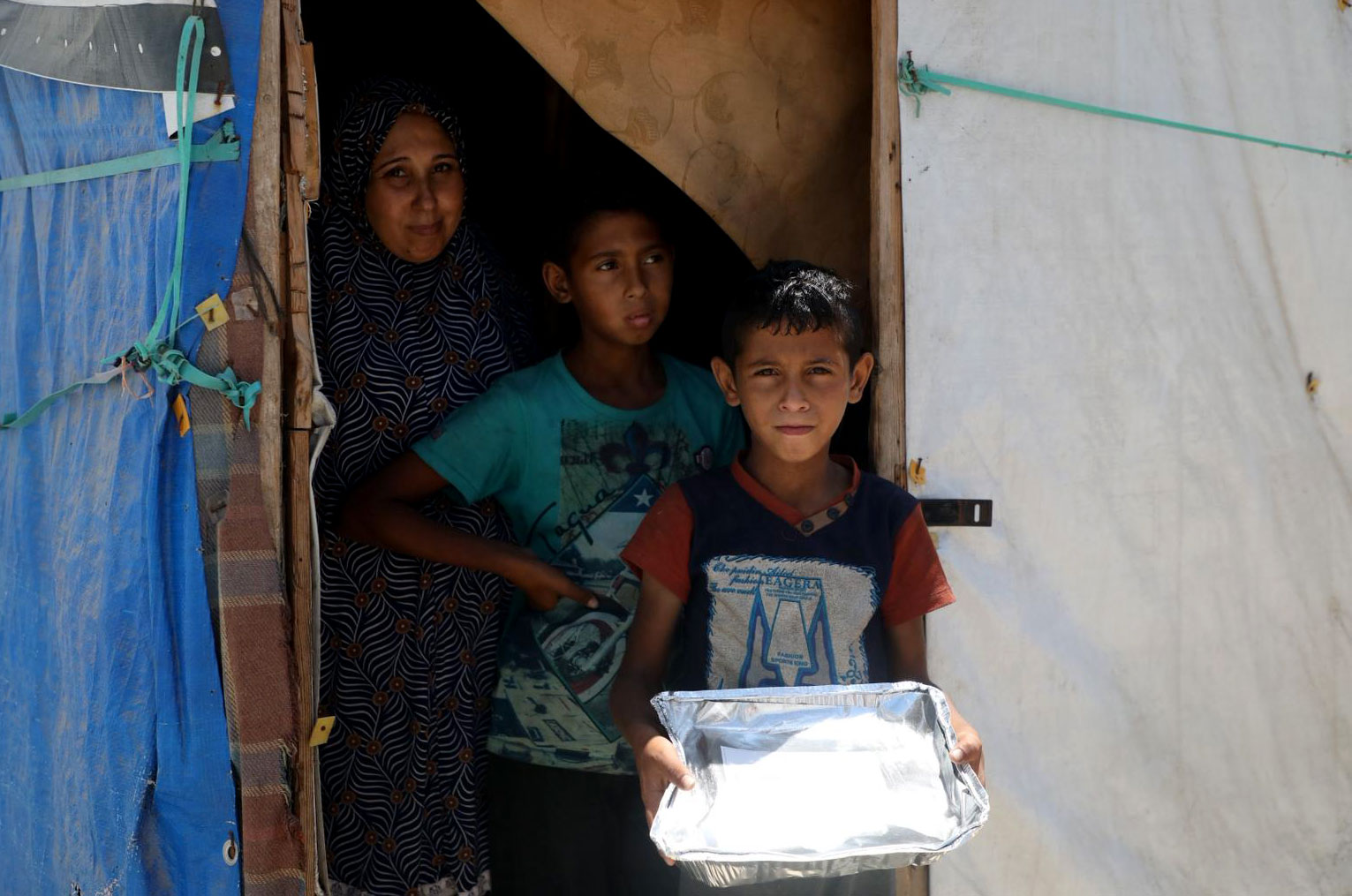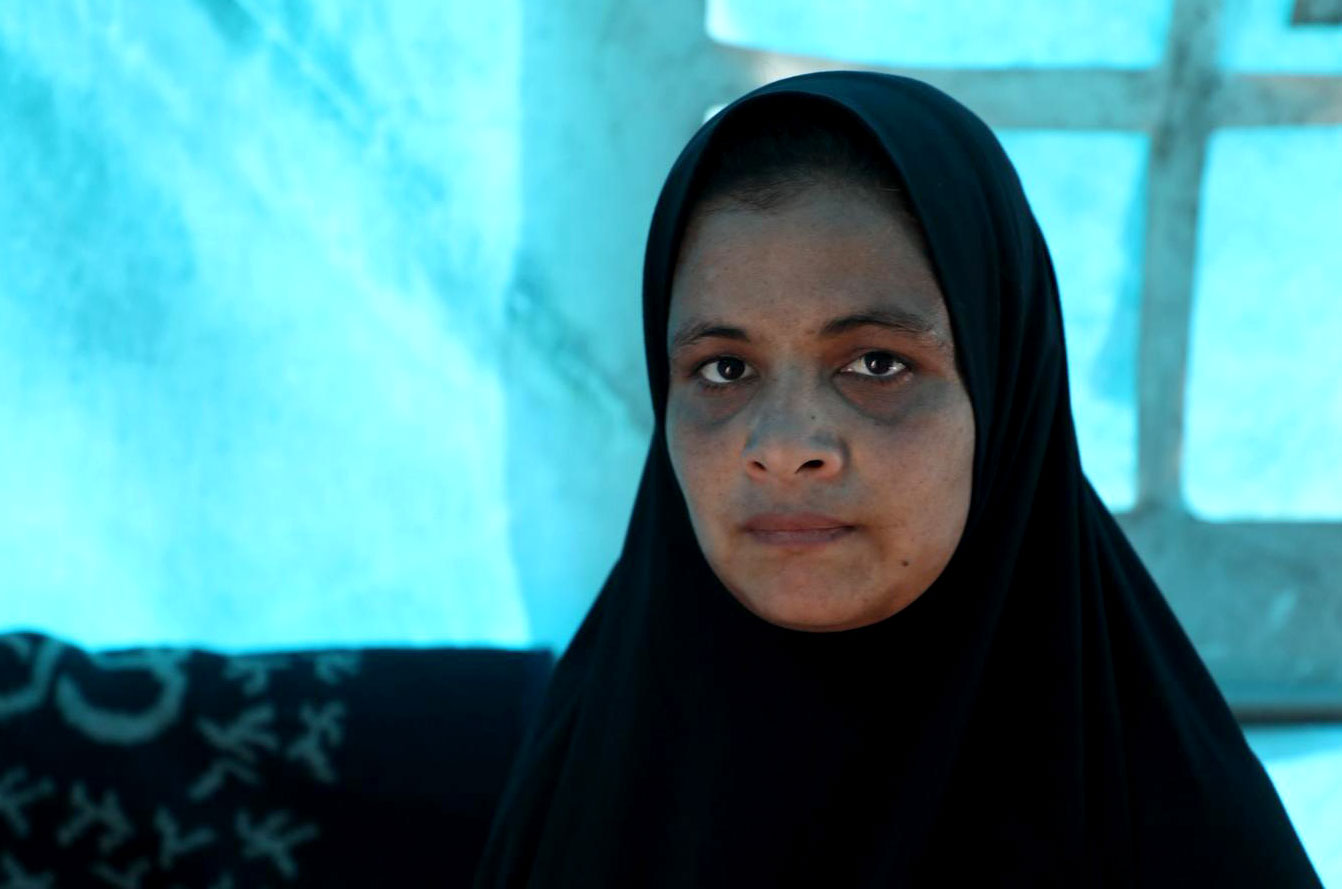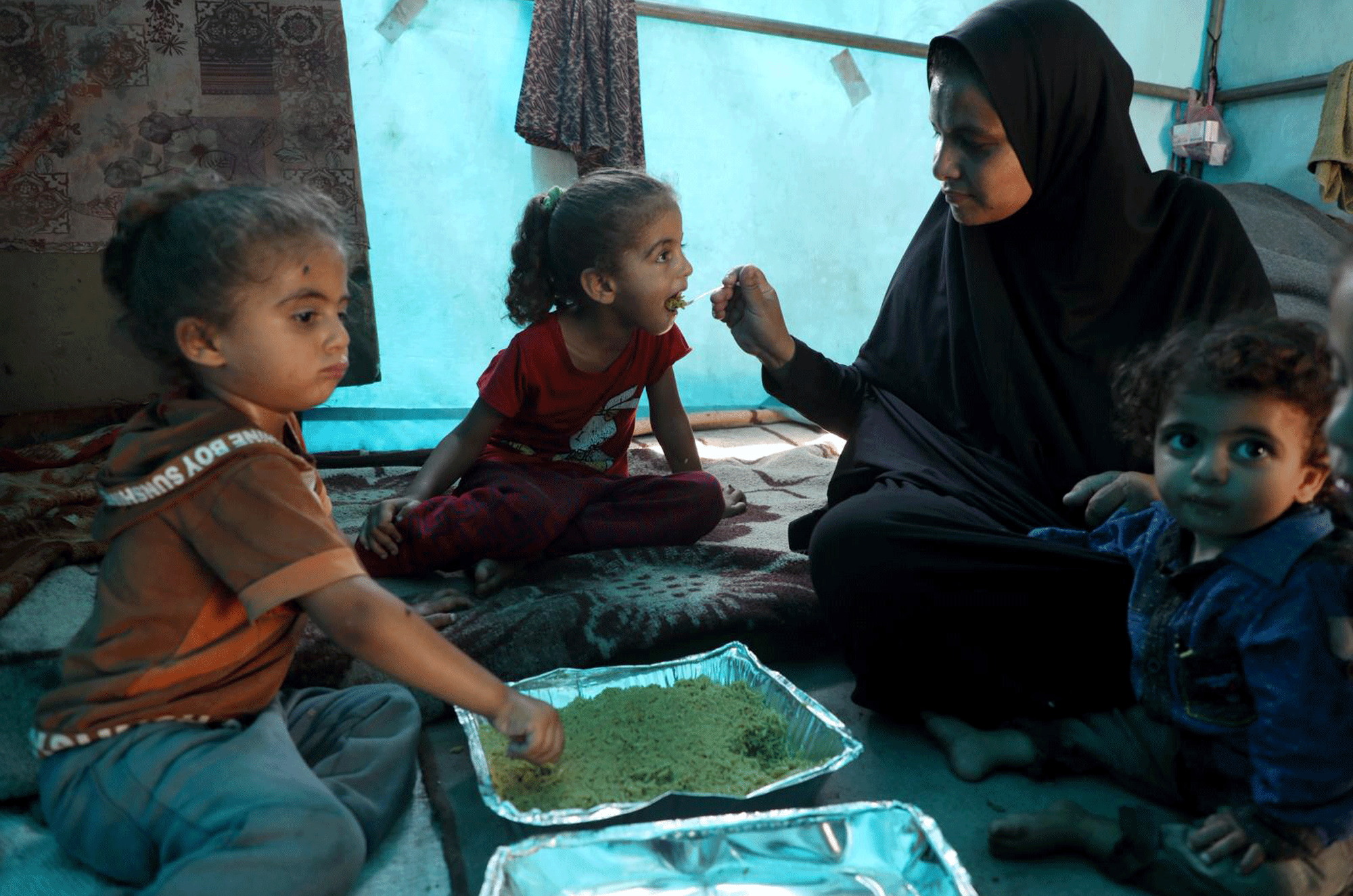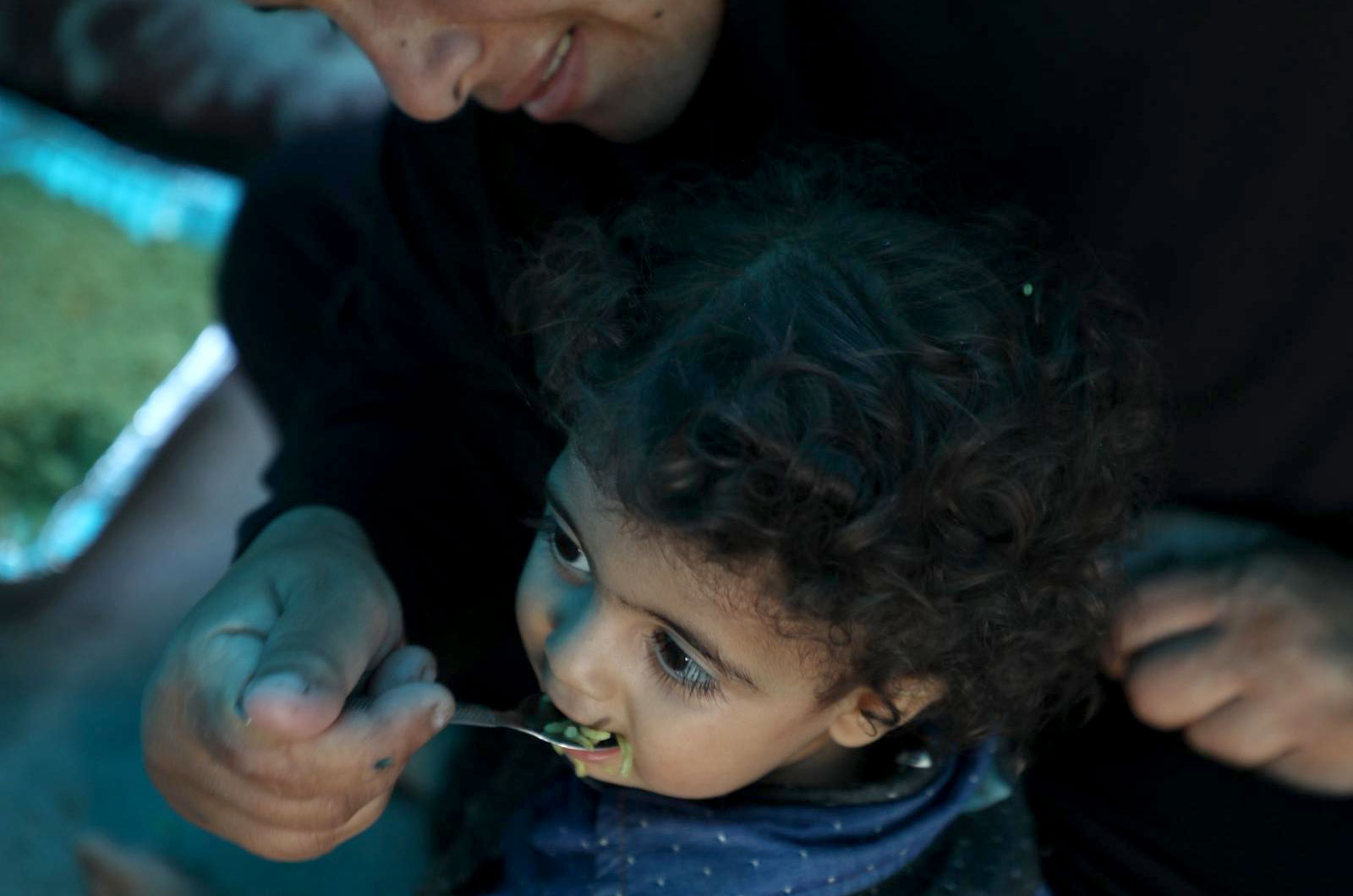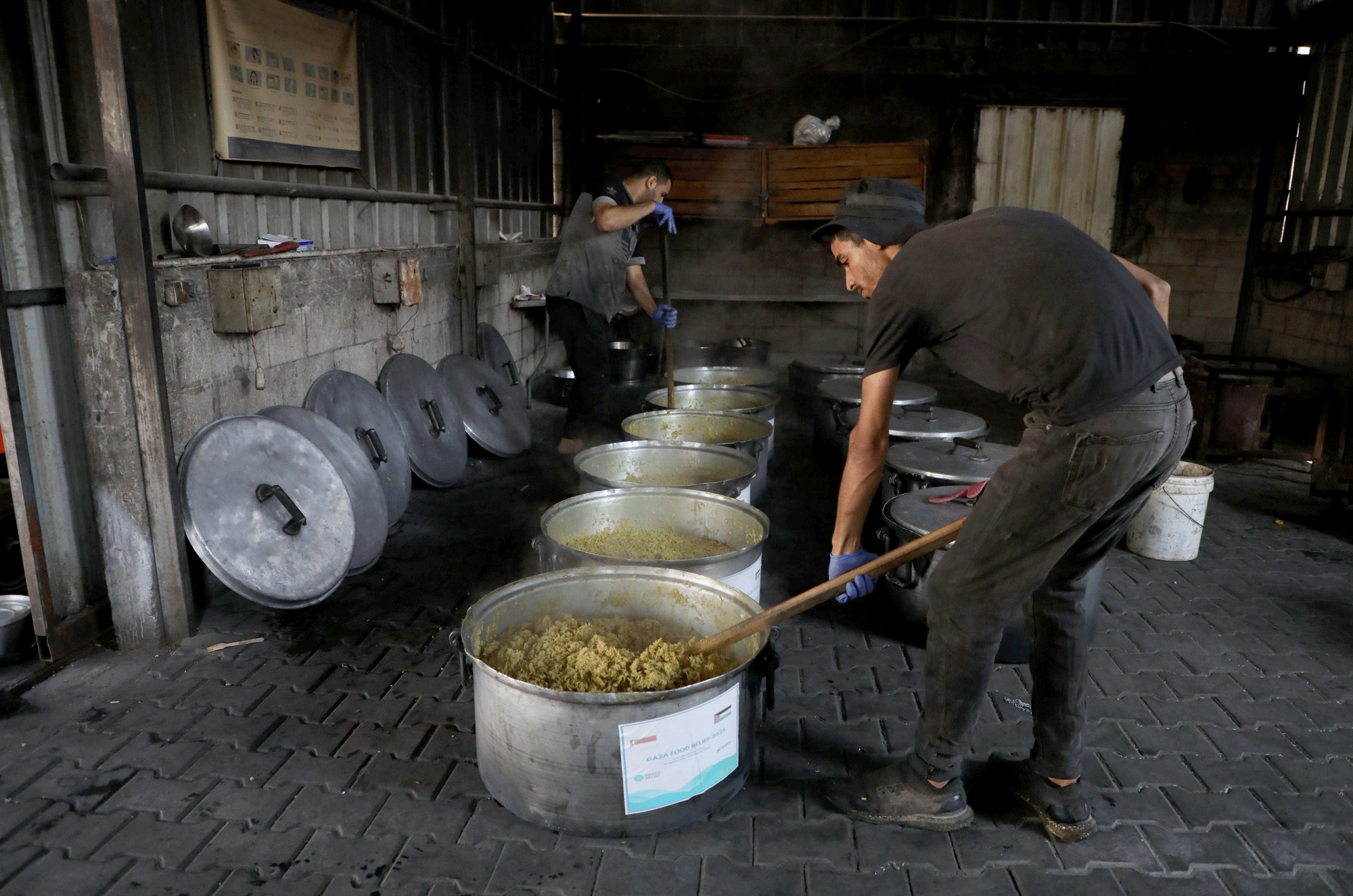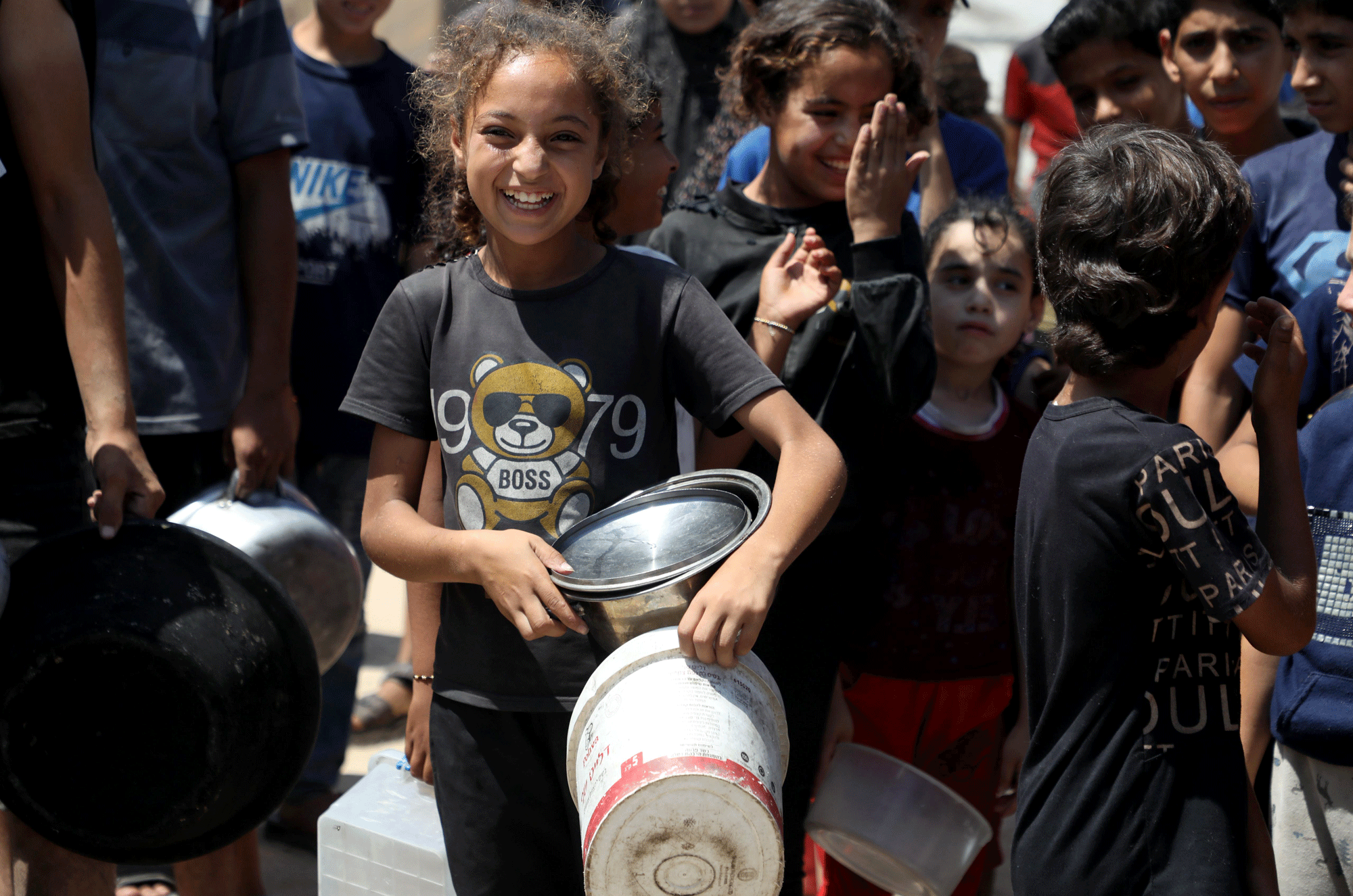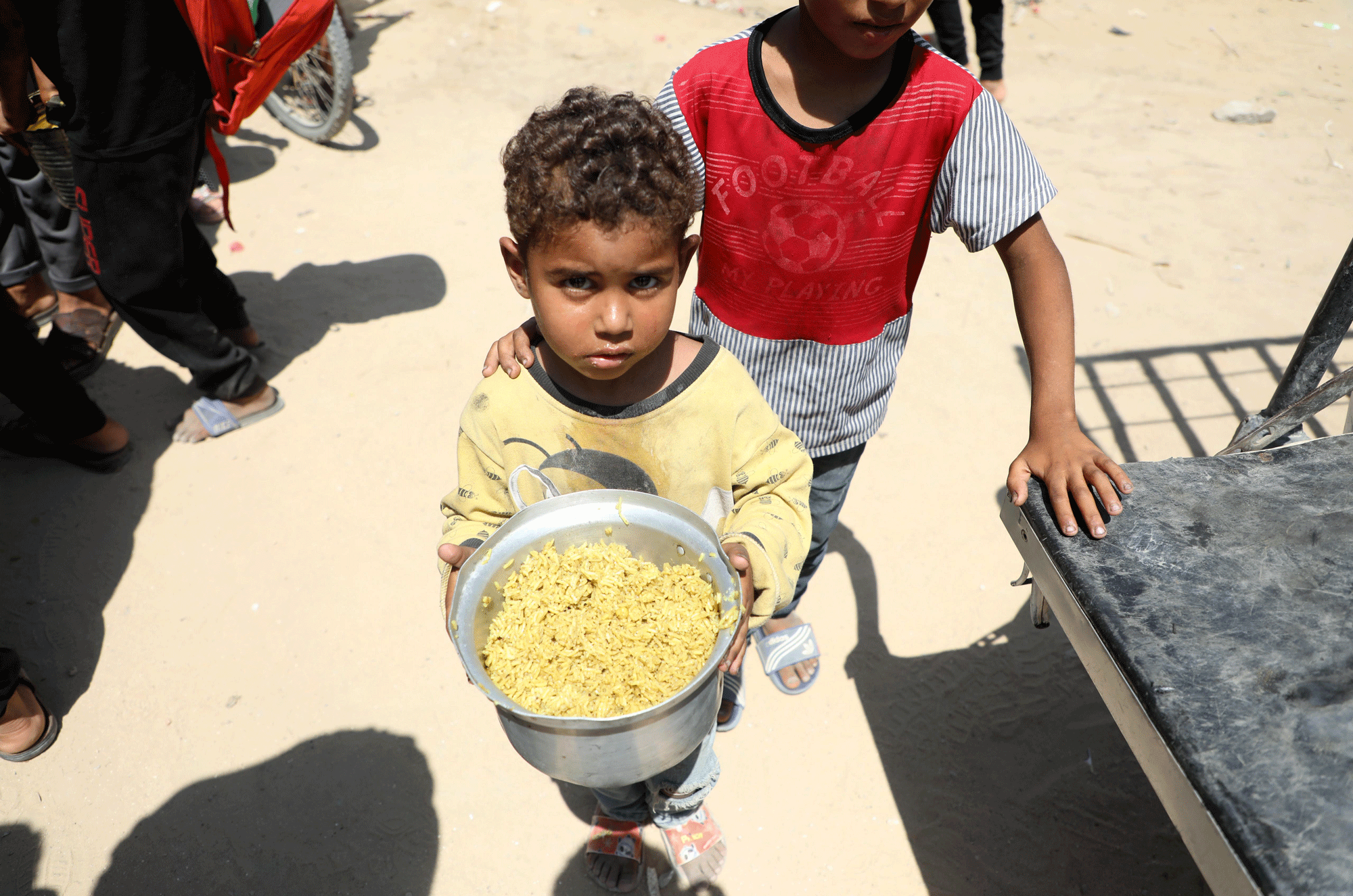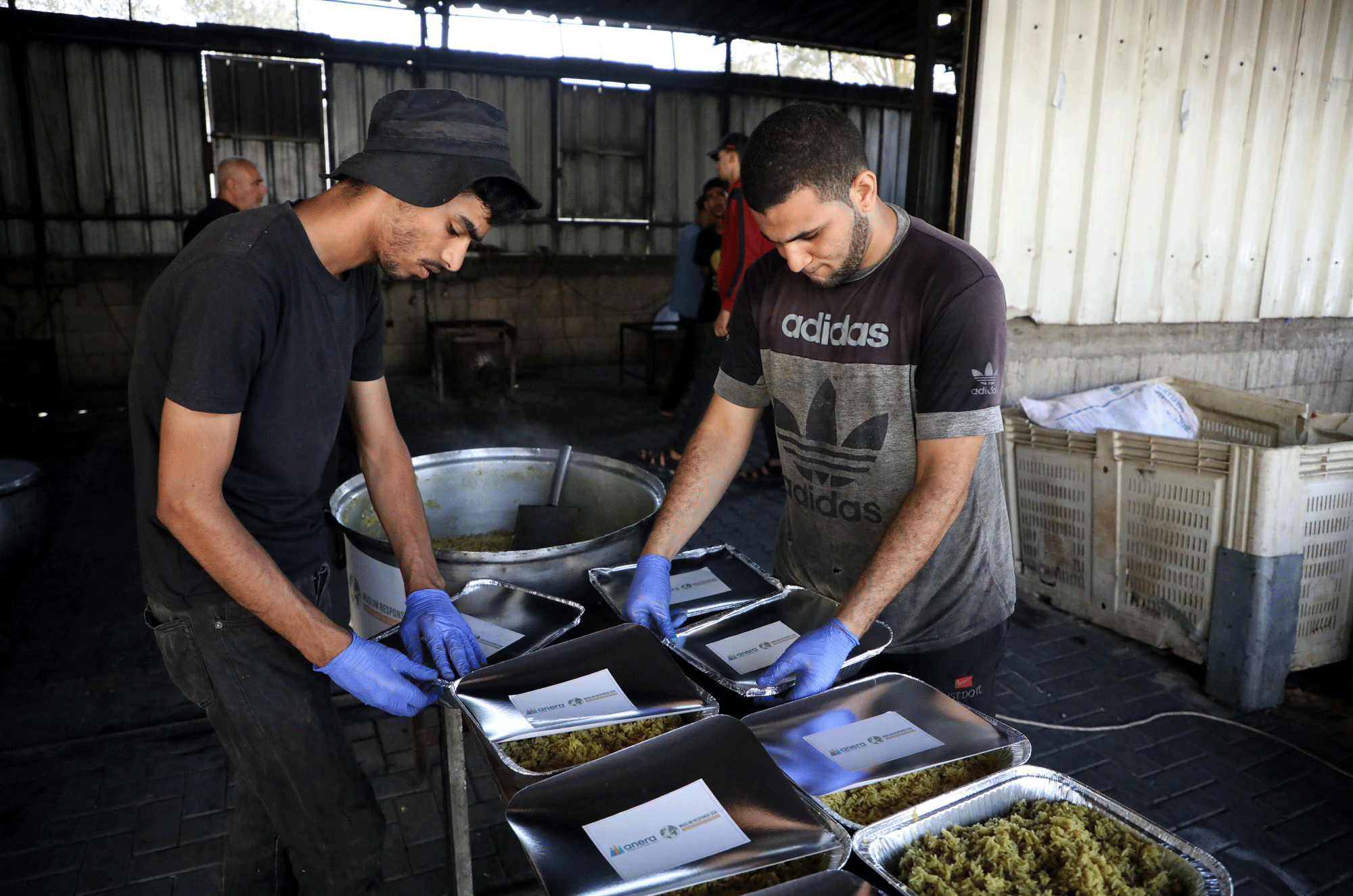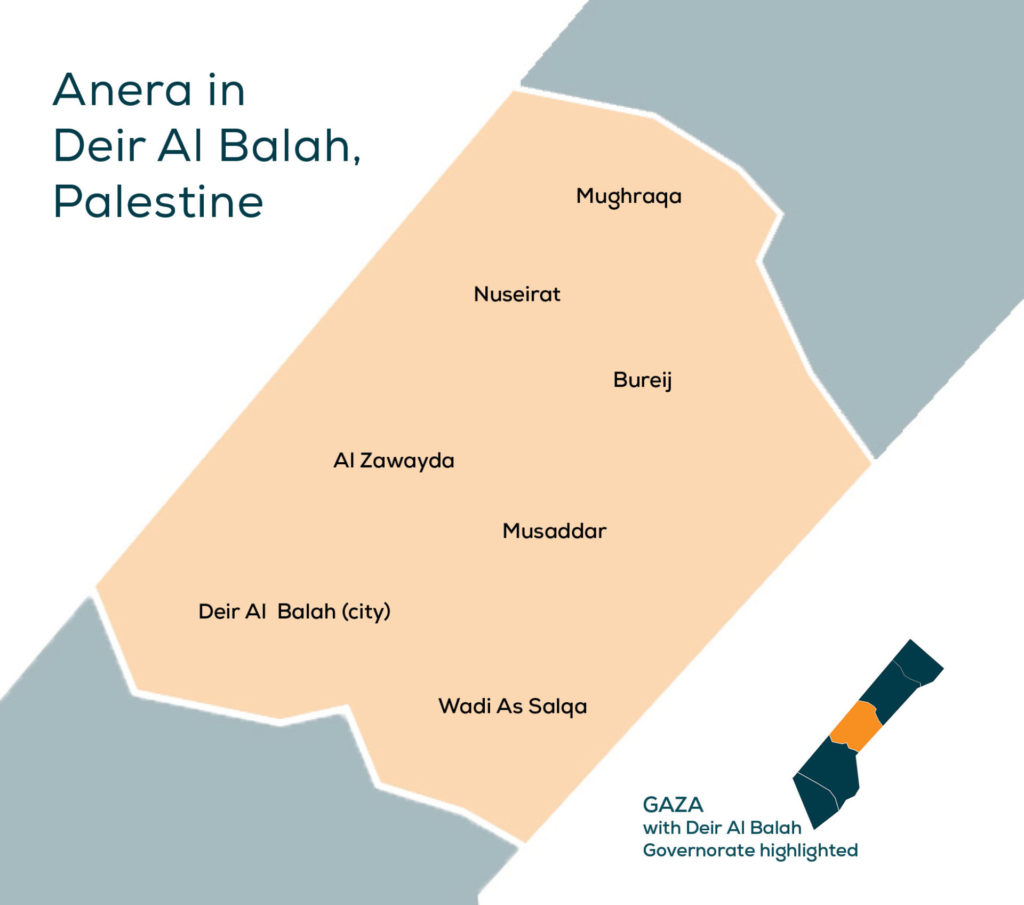Jul, 2025
Anera’s community kitchen in Deir Al Balah continues to provide food and hope to families in need.
In Gaza, hunger has become a daily torment. The ongoing war and suffocating siege have decimated supply chains, blocked aid, and turned once-simple meals into rare miracles. For countless families now living in tents, survival is an hour-by-hour effort.
Yet in the midst of this crisis, moments of relief arrive — in the form of hot meals prepared and distributed by the Deir Al Balah community kitchen, supported by Mercy Relief and Muslim Response USA For Relief And Development. These meals do more than feed hungry stomachs — they restore a measure of dignity and humanity.
Two parents — Majed, a graphic designer, and Islam, a mother of five — share their stories.
Meet Majed
"Before the war, I lived a modest life, but one I was proud of. I’m a graphic designer. I had built a good reputation here in Gaza, working with local companies, growing a portfolio. Just before everything changed, I received an offer from a design firm in the UAE. It felt like the breakthrough I had been working toward for years.
"My documents were ready and I was arranging the final details of my travel to the UAE. I felt like I was finally about to reap the rewards of my hard work.
"Then the war began. In October 2023, we had no choice but to flee our home during the bombings. I left behind everything — my laptop, my work, my life.
"We escaped from Shati Camp to Deir Al Balah. Now I live in a tent with my wife and two children. There is no electricity, no water, no food. Every day is a struggle to survive.
"Since March 2, Gaza has descended into one of the worst emergencies in our history. The siege has tightened. Crossings are sealed. No aid, no fuel, no flour. Bakeries are shut down. Markets are nearly empty. And when something does appear, the prices are way too high.


"I left behind everything - my laptop, my work, my life."
"Sometimes I go to the market just to see what might be left. But there’s nothing: no lentils, no rice, no oil, no vegetables. And if by chance you find something, like tomatoes, it could cost more than I used to earn in a day. Now I don't have a salary at all, of course.
"In desperation, I tried planting vegetables near our tent. But the soil here is not good and we don't have much water. Also, I have no experience in farming. I can create beauty in design, but farming takes special knowledge, patience and tools I don’t have.
"I look at the plastic bags hanging in the tent that were once filled with rice and lentils. Now they’re empty. Everything we had stored is gone. I don’t know how I’ll feed my kids tomorrow. Every morning, my wife and I stare at each other, asking the same question: What will we eat today?
"And we are not alone. Everywhere we look, people sit outside their tents, talking about food and nothing else. One woman told me she boiled water with just a handful of lentils. Another swore she made bread from crushed pasta.


"I don’t know how I’ll feed my kids tomorrow. Every morning, my wife and I stare at each other, asking the same question: What will we eat today?"
"Then, one day, we heard something that seemed too good to believe: the community kitchen in Deir Al Balah would be distributing hot meals. Anera and Muslim Response USA were behind the effort.
"When they told us the meals were coming, I didn’t know whether to be hopeful or afraid to hope.
"But they came. And when I opened the container, I smelled something I hadn’t in so long — warmth and life. We sat in silence and ate as if it were a sacred ritual. There was no meat, but after days of nothing, it was incredible.
"I’m deeply thankful to Anera, to Muslim Response, and to every person who stood by us. These meals aren’t mere food. They are a message that we are not entirely forgotten.
"I pray these efforts continue. And that other organizations join in. These camps are filled with families like mine, shattered and starving. Every bit of support saves lives.
"But more than meals, what we need most is an end to this war. We need the crossings opened immediately, and for aid to enter safely and with dignity.
"We want to live like human beings. Not refugees in our own land. We want to feed our children without humiliation. We want to go back to work, to pursue our dreams.
"I’m still a designer. But now, I sketch the fragments of a life under siege, trying to hold on to what’s left."


"But more than meals, what we need most is an end to this war."
Meet Islam
"Almost two years ago, I lost everything — my home in Shejaiya [in Gaza City], my memories, my life. When the bombs started falling, I grabbed my five children and ran. We fled south, eventually ending up here in a tent camp in Deir Al Balah.
"We thought it would be temporary. But we’ve been here ever since.
"Now, I sit in a tent made of torn nylon under the hot Gaza sun. My children sleep inside under one blanket on a dusty floor. We have no shelter, no income, no food, and no hope. We are the living dead.
"For the last three months especially, hunger has been our constant shadow. The Israeli siege has meant we get no flour, no fuel, no aid. The bakeries have shut down. The food aid is gone. What used to be normal — cooking, enjoying a meal, just feeding my children — has become a distant memory.
"We haven’t seen a loaf of bread in more than a month. My kids used to start their day with it. Now they ask, 'Mama, when will we eat bread again?' And I have no answer. I just hold them.


"We are the living dead. For the last three months especially, hunger has been our constant shadow."
"Sometimes their crying gets so loud, the whole camp hears it. I lose control and yell at them — just so they’ll stop, so they’ll sleep from exhaustion. And then I break down myself. That scene has happened too many times to count.
"And just when I thought it couldn’t get worse, my husband — the only one who used to provide for us — got sick. He used to sell food products in the city. A few months ago, he started having severe stomach pain. It got worse every day. Eventually, we found out he has colon cancer.
"Now he moves between our tent and the hospital. He’s so weak, he can barely walk. I’ve become the mother and the father. I am everything now.
"Some days, we eat nothing. I boil water, add a little salt, and tell the kids it’s soup. They know there’s nothing in it, but they pretend — just to feel full.
"Then one day, something miraculous happened. I heard that hot meals were being distributed by the community kitchen here in Deir Al Balah, run by Anera and supported by the Mercy Relief. I ran there as fast as I could. One of the staff told me the food would be brought directly to our tent. And they did.
"Rice and chickpeas. It may sound simple, but to us, it was everything. It was the first time in days that my children had something warm and filling in their bellies. They rushed inside the tent as if they had smelled it from far away. Their eyes lit up like someone had handed them treasure.
"And that night, for the first time in a week, they fell asleep without crying.
"That meal didn’t just fill their stomachs. It gave us back a sense of dignity. It reminded me that someone out there still sees us — not just as numbers, not just as a tragedy — but as people.
"I thank Anera, the Mercy Relief, and everyone who supports this kitchen. You may think it was just a meal, but it saved us that night and it helped me feel like a mother again.
"I only pray this support doesn’t stop. We’re living without bread, without flour. We don’t know how long this will go on. This kitchen is our only source of food right now. Without it, I truly don’t know how we’ll survive."


"Rice and chickpeas. It may sound simple, but to us, it was everything. It was the first time in days that my children had something warm and filling in their bellies.... And that night, for the first time in a week, they fell asleep without crying."
These are just two of the many stories unfolding across Gaza today. They underscore the daily reality families face: starvation, displacement and uncertainty. At the same time, they highlight the tangible impact of consistent support — how something as simple as a hot meal can provide stability in a chaotic environment. With the backing of partners like the Muslim Response USA and Mercy Relief, Anera’s community kitchen in Deir Al Balah continues to operate. But the need remains urgent, and sustained support is essential to meet it.

